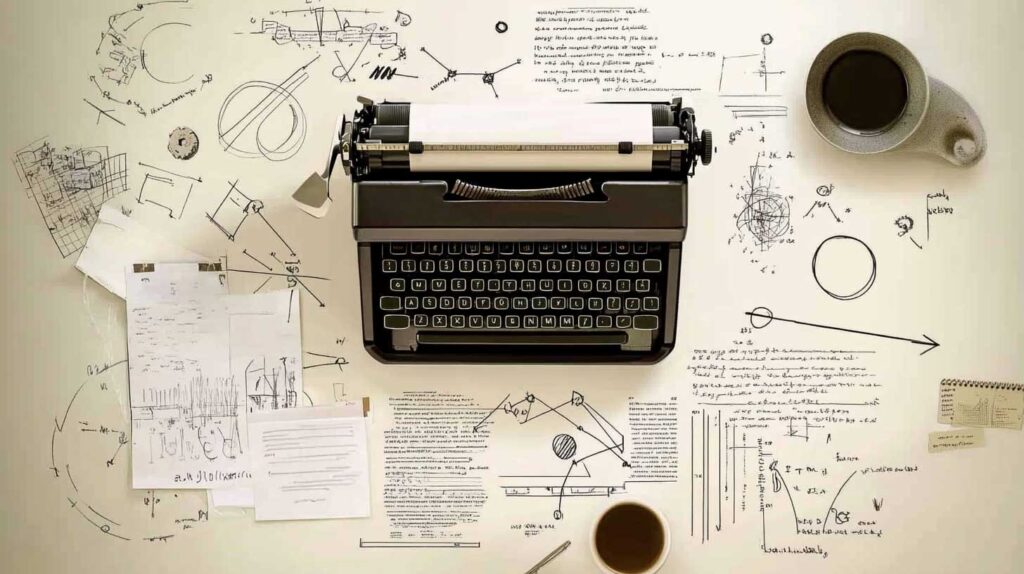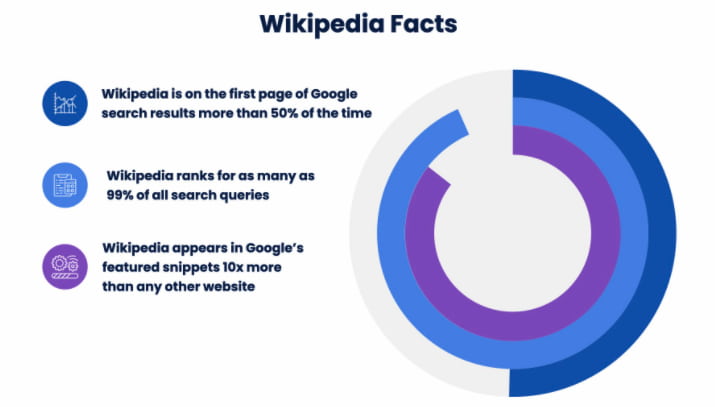Wikipedia Editors: The Propaganda and Whitewashing Issue

Wikipedia dominates search results and offers a quick reference point for a wide variety of information, but its user-generated editing model often causes concern.
Since anybody can create a Wikipedia account and start editing articles, there is plenty of room for foul play on the platform.
- Do governments use Wikipedia for propaganda purposes?
- Do PR firms whitewash articles for clients?
- Do activist editors police articles as they see fit?
- Do competitors vandalize articles?
This environment creates an opportunity to spread propaganda, destroy reputations, thwart elections, and more. This article will talk about how Wikipedia is being abused behind the scenes.
Sections
- What is an activist editor?
- What is “whitewashing” in Wikipedia?
- How propaganda and misinformation is spread on Wikipedia
- What types of articles are at risk for vandalism?
- Why is it important to maintain a neutral point of view on Wikipedia?
What is an activist editor?
An activist editor is someone who will complete propaganda edits on an article, often for a fee. These Wikipedia editors mask their work by completing many “regular” edits in between propaganda edits. They sometimes work in groups and can have a chilling effect on neutral edits that may lean positive for certain kinds of articles.
Activist editor groups work quietly behind the scenes of target articles by:
- Utilizing different editor accounts in good standing
- Using different IP addresses
- Using different computers
All of these techniques ensure that activist editors obfuscate their digital footprint.
Groups of associated Wikipedia editors that seem independent often edit articles and support each other to make it appear that changes are acceptable to the Wikipedia community. They may support a new article together but do it in a way that makes it seem like they don’t know each other. They may vote to keep articles for deletion that, in reality, deserve deletion. These and other techniques are used to push an engineered online narrative.
What is “whitewashing” in Wikipedia?
Whitewashing is the act of softening the narrative of a Wikipedia article. Instead of saying, “An endangered species was wantonly slaughtered by a company,” editors for the company in question might instead say, “It’s unfortunate that some animals were hurt.”
Whitewashing for one person is “balanced editing” for another.
Whitewashing can be “propaganda lite” in some ways. Even the NYPD was apparently caught doing it for the Wikipedia article on the death of Eric Garner.
But in a world of activist editors who use Wikipedia as a blunt instrument to pillory individuals and companies they don’t agree with, whitewashing, to some extent, might be necessary. To those who feel Wikipedia has a left-leaning bias, it’s a necessary tool to balance the online narrative.
How propaganda and misinformation is spread on Wikipedia
Wikipedia is an SEO powerhouse. It ranks for as many as 99% of all search queries and makes it on the first article of Google at least 60% of the time.
Wikipedia appears in Google’s featured snippets 10 times more than any other website.

With 21 million articles and 3.4 million registered users, it’s no wonder why Wikipedia has gained so much trust among its readers. An episode of the hacker TV show “Mr. Robot” featured Wikipedia as a tool to convince an unwitting company that one of the characters was a tycoon by creating a fake Wikipedia article for them.
Wikipedia is one of the largest repositories of information in the world, and as such, it becomes easy to forget to consider who the editors of an article are, most importantly, their backgrounds, motives, and whether or not they were paid to edit.
Wikipedia tries, though. It monitors both new and existing articles for suspicious content and Wikipedia vandalism. A Wikipedia editor with enough clout can revert edits for seemingly any reason.
Here are some common reasons for reverting edits:
- It is not well-sourced
- It contains biased information
- It is not written in an encyclopedic style
- It can be viewed as promotional
In most instances, edits are reverted on a case-by-case basis and an editor can stay active on the platform. In extreme cases, Wikipedia may take greater action by flagging entire articles for removal or banning accounts.
That’s the case for one-off incidents. But there are also more organized editor scandals lurking in the shadows. One such group was recently exposed in mainland China. Wikipedia banned seven mainland Chinese power users following a report of alleged threats to Hong Kong users. Wikipedia also revoked administrator access and other privileges for 12 other users.
The group was responsible for an unprecedented, organized “editing war” in which members allegedly threatened to report Hong Kong peers to the city’s national security police. Maggie Dennis, the Wikimedia Foundation’s Vice President of Community Resilience & Sustainability, said in a Wikimedia thread that some Wikipedia users were “physically harmed as a result of such infiltration,”
You’d have to do something pretty bad to warrant a global ban on your account. The Wikimedia Foundation has only banned a total of 97 users since 2012. However, Dennis warns this type of behavior is on the rise.
“I do think that the risk is greater than ever now when Wikimedia projects are widely trusted, and when the stakes are so high for organized efforts to control the information they share,” Dennis said.
What types of articles are at risk for vandalism?
On Wikipedia, vandalism is the act of intentionally disrupting an article for entertainment or malicious reasons. Wikipedia vandals add, remove, or modify articles in a way that is purposefully humorous, nonsensical, or otherwise harmful to the subject of the article.
Pages that are subject to a high volume of edits, such as articles about trending and controversial topics, celebrities, and current events, are often the target of vandalism. For example:
- Governments may vandalize articles that are not aligned with their spiritual or religious ideals.
- People have edited Wikipedia articles of celebrities to say they have died, which has happened to Senators Ted Kennedy and Robert Byrd.
It is against Wikipedia’s terms of use to vandalize or otherwise cause disruption of an article. Vandals are blocked from editing, and may also be further banned according to the terms of use. In an attempt to thwart vandals, Wikipedia has added protections for certain articles that require editors to meet editing requirements to make any changes to those articles.
Why is it important to maintain a neutral point of view on Wikipedia?
There are many personalities editing Wikipedia. Activist editor are pushing their own agendas, while some may feel completely out of control of a Wikipedia page about themselves.
The most obvious reason that a neutral point of view on Wikipedia is important is that it will be more truthful and accurately inform readers on the topic.
Here are a few more reasons to maintain neutrality on Wikipedia:
- Wikipedia dominates search results, so any negative content on your Wikipedia page will be seen.
- Wikipedia links to news sources and other high-ranking websites. This means that these links are constantly making the Wikipedia article stronger and rank higher.
- Wikipedia is frequently updated, so negative content will be read and reread.
Final thoughts
We’ve previously referred to Wikipedia as the Wild West, and it certainly has many hallmarks that lend true to the analogy. Activist editors work in groups to make propaganda edits, governments use Wikipedia for propaganda purposes, and PR firms whitewash articles for clients.
With all of this going on behind the scenes of Wikipedia, there is cause for concern. Protect your organization’s Wikipedia article by monitoring it for changes. If you suspect your article is the subject of vandalism or propaganda edits, contact us today for a consultation.
About the author
Brianne Schaer is a Writer and Editor for Reputation X, an award-winning online reputation management services agency based in California. Brianne has more than seven years of experience creating powerful stories, how-to documentation, SEO articles, and Wikipedia content for brands and individuals. When she’s not battling AI content bots, she is cruising around town in her Karmann Ghia. You can see more of her articles here and here.
–
Tags: Wikipedia.
